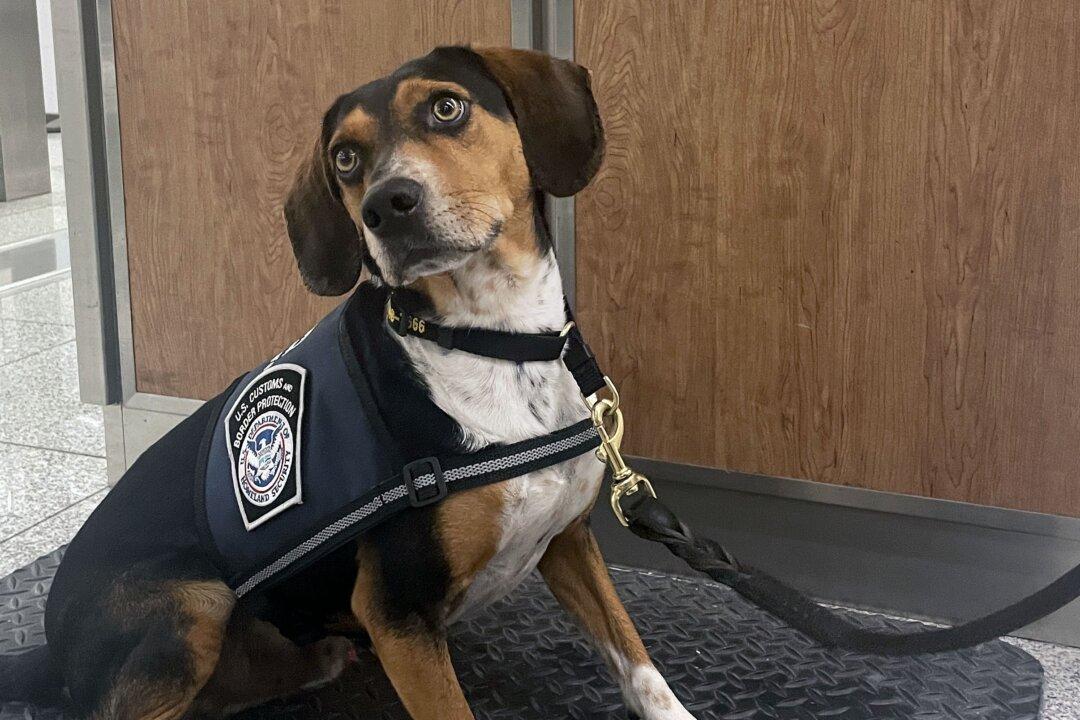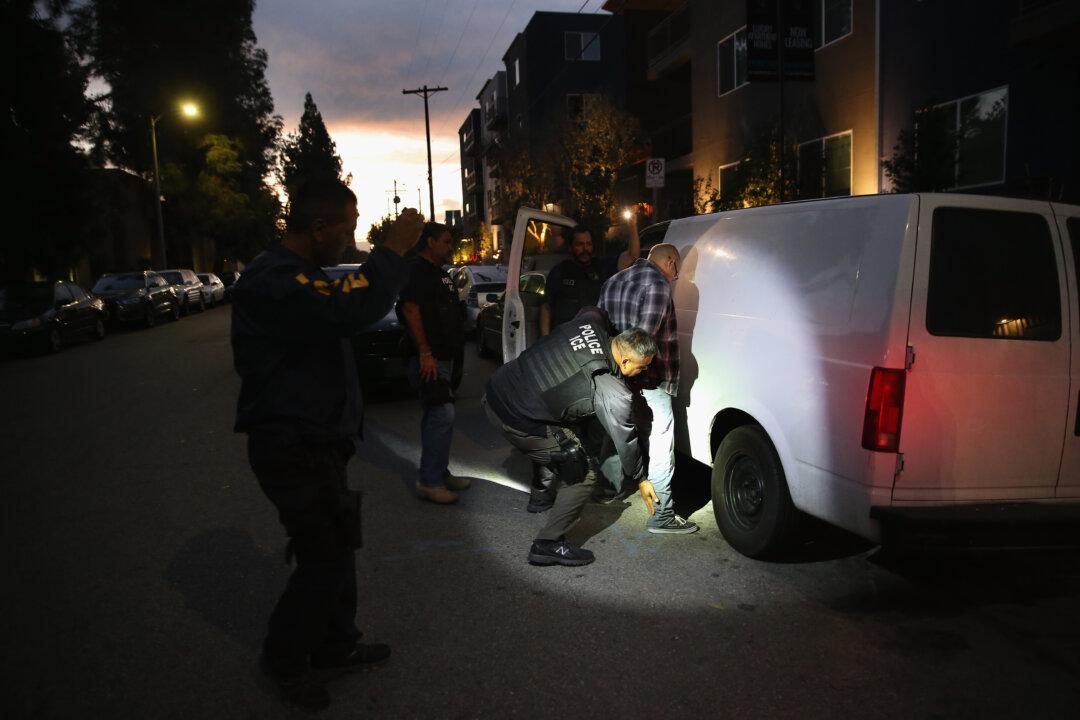U.S. Customs and Border Protection (CBP) announced on June 17 that the newest member of its Beagle Brigade had a successful first day of work, helping to identify prohibited agricultural items at Hartsfield-Jackson Atlanta International Airport in Georgia.
Flash, who was trained to detect various products that could be potential threats to U.S. agriculture, alerted a CBP officer to luggage arriving from Nigeria.





